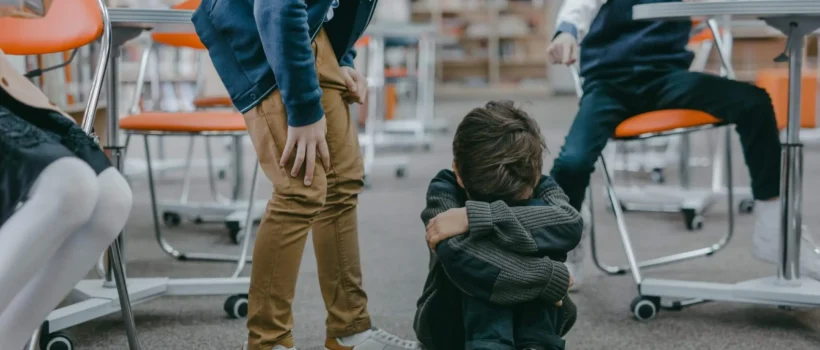
Is Your Child Facing the Hidden Dangers of Bullying?
Imagine your child waking up every day with a sense of dread. Not because of schoolwork, but because of what might happen on the playground, in the classroom, or on the school bus. This is the harsh reality for many children who face bullying.
Bullying isn’t just a passing phase, it can change a child’s life forever, influencing how they view themselves, others, and the world. As parents, it’s crucial to understand the real impact bullying can have on your child’s mental and physical health, and why it’s something we must all take seriously.
The Different Forms of Bullying
Bullying comes in many forms such as physical harm, verbal abuse, social exclusion, and even the silent treatment. In today’s world, it can follow children home through social media, creating an endless cycle of fear and isolation. What makes it worse is the lasting impact bullying has on a child’s mental and emotional well-being.
The Mental Toll
Children who are bullied are at a much higher risk of developing anxiety, depression, and low self-esteem. Constantly hearing negative remarks like, ‘You’re not good enough’ or ‘You don’t belong’ can deeply hurt a child’s confidence. Over time, these feelings of worthlessness become internalized, leading to long-term emotional struggles that can follow them into adulthood.
Physical Effects of Bullying
The effects of bullying are not just emotional, they are physical, too. Children who are bullied often experience headaches, stomachaches, and difficulty sleeping. Chronic stress weakens their immune systems, and they may suffer from changes in appetite, either overeating or losing their desire to eat.
In some cases, the consequences can be even more severe. There are tragic stories of children being hospitalized or suffering long-term trauma as a result of extreme bullying. No child should have to endure that kind of fear or pain.
Spotting the Signs of Bullying
As a parent, how can you tell if your child is being bullied? Here are some signs to look for.
Are they suddenly afraid to go to school or certain activities?
Do they seem anxious, fearful, or start making negative comments about themselves?
Are they complaining of frequent headaches or stomach aches?
Is their school performance dropping, or do they seem uninterested in things they once enjoyed?
Have you noticed damaged belongings, unexplained injuries, or reports of hunger after school?
These signs could indicate that something deeper is happening. Children often don’t come forward because they feel scared or ashamed, so it’s vital to recognize these subtle signals.
How to Respond?
When you suspect bullying, the first step is to create a safe environment for your child to talk openly. Ask gentle, open-ended questions like, “How was your day?” or, “Is there anything bothering you at school?” Let them know it’s okay to feel upset and that you’re there to support them.
It’s also important to equip your child with tools to handle difficult situations. Role-play scenarios with them to teach assertiveness, and encourage them to seek help from a trusted adult when needed.
Building a Culture of Kindness
As a community, we must foster environments where kindness, empathy, and respect are core values. When children feel safe and supported, they are less likely to bully or be bullied. As Dan Pearce once said, ‘People who love themselves don’t hurt other people. The more we hate ourselves, the more we want others to suffer.’ Often, bullies are reflecting their own pain and insecurities.
Together, We Can Make a Change
Bullying is not just a part of growing up, it’s a serious issue that affects millions of children. By addressing the problem with compassion and taking steps to create a more supportive environment, we can ensure no child has to wake up dreading the day ahead.
It starts with us!

